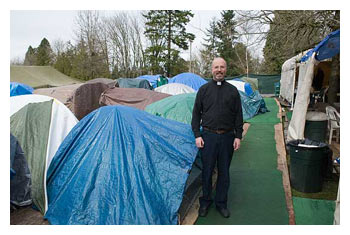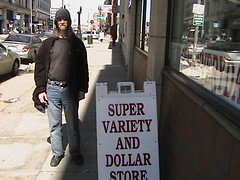 In An Ethic for Christians, William Stringfellow wrote: “The unique aspect of biblical faith is that immediate, mundane history is beheld, affirmed, and lived as the true story of the redemption of time and Creation. Biblical ethics constitute a sacramental participation in history as it happens, transfiguring the common existence of persons and principalities in this world into the only history of salvation which there is for humanity and all other creatures.â€
In An Ethic for Christians, William Stringfellow wrote: “The unique aspect of biblical faith is that immediate, mundane history is beheld, affirmed, and lived as the true story of the redemption of time and Creation. Biblical ethics constitute a sacramental participation in history as it happens, transfiguring the common existence of persons and principalities in this world into the only history of salvation which there is for humanity and all other creatures.â€
It strikes me that this idea of redemption lies at the heart of David Griffith’s essays in A Good War Is Hard to Find. As he describes our “common existence” he seems to desire for Christians to act rather than react, to act justly, tenderly, humbly, rather than react violently either through ouright violence or through complicity with violence born of apathy, boredom, or believing in the euphemistic language used to describe it.
Continue reading “Nation of Lost Souls”



